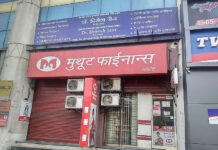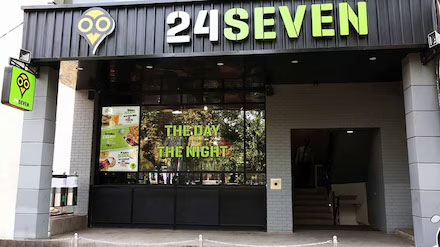Agency
new delhi, Nov 27
Conventional wisdom says buying a 100-store retail company when quick commerce is reigning supreme is a huge risk, specially when the acquirer itself is just five years in the retailing business. But Aastha Almast, co-founder of New Shop, which is awaiting regulatory approvals for the acquisition of 24Seven, argues otherwise.
New Shop’s physical format, she says, offers advantages that online players cannot replicate. “Quick commerce solves unidimensional needs-last-minute deliveries-but doesn’t address all consumer demands. Physical stores thrive on community engagement and serve as hyperlocal hubs for services,” she says.
Besides, New Shop, which started in 2019, is into convenience retail, which is about products consumed within the first hour of purchase. “You don’t need extremely large assortments for that,” Almast said. New Shop focuses on a curated range of 1,800 products tailored to immediate needs, unlike quick-commerce players like Swiggy and Blinkit which have huge inventories.
The acquisition of 24Seven fits in nicely to New Shop’s future game plan, Almast explains. First, for nearly a decade, 24Seven belonging to Godfrey Phillips India (GPI) has been a prominent name in India’s organised convenience retail sector, catering to urban consumers in Delhi-NCR, Punjab, and Hyderabad. “The stores were operationally profitable but didn’t align with GPI’s core focus. For us, this is an opportunity to integrate these assets into our model.”
She has a point. While 24Seven reported revenues of Rs 403 crore in FY24, the business contributed only 7.6% to GPI’s total turnover and carried accumulated losses, prompting the board to exit the segment. “This isn’t about saving a failing business,” Almast said in an interaction with FE.
The closure of all 24Seven stores earlier this year was part of a planned rebranding process, according to Almast, ensuring the stores could be remodeled under New Shop’s branding and operational framework. “This step was necessary to create uniformity across all locations,” she added.
Currently, New Shop operates over 200 stores across 35 cities. It aims to expand to 380 outlets by the end of FY24, including the 100-odd 24Seven stores. Most of the acquired assets will boost density in existing regions, with Hyderabad emerging as a new market. New Shop has raised $7.2 million from investors such as Anthill Ventures, Riseoo, and Good Game Ventures, with its latest valuation pegged at $32.2 million, according to Tracxn.
Founded in 2019, New Shop initially ran company-operated outlets to gain insights into convenience retail operations, including site selection, unit economics, and customer preferences. Once processes were optimized, it transitioned to a franchise-owned, franchise-operated (FOFO) model, which Almast credits for driving scalability.
This model has allowed the company to cut costs significantly, with franchisees now bearing the full cost of initial set up.
Its modular, foldable stores, which cost Rs 15-25 lakh each to set up, can be assembled in just 15 days. Operational breakeven is typically achieved within 45 days, with pay back periods ranging from 12-18 months, making the model attractive for grassroots entrepreneurs, according to Almast.
Typically one such store would on average generate monthly revenues of around Rs 15 lakh, with Rs 9 lakh from offline sales, Rs 3 lakh from New Shop’s app, and Rs 3 lakh from partner platforms like Swiggy and Zomato. The average cost structure includes rent (Rs 50,000), manpower (Rs 80,000), electricity (Rs 60,000), other miscellaneous costs (Rs 10,000), and royalty payments (Rs 50,800). After accounting for these expenses, franchisees retain a net revenue of approximately Rs 2.28 lakh, representing a net revenue margin of 15%, according to the company.
In terms of revenue and margin contribution, food and beverages (F&B) leads with a 30% sales contribution and a gross margin of 60%.
Looking ahead, New Shop plans to expand into other South Indian cities and boost its store count at transit hubs such as petrol pumps, railway stations, and airports. The company also plans to add EV charging stations and vending kiosks at select locations. 24Seven’s existing partnership with Indian Oil Corporation and New Shop’s similar arrangement with Hindustan Mittal Energy Limited (HMEL) are expected to drive these initiatives. The company is also working with a tobacco manufacturer to design smaller cigarette packs, tailored to Indian buying habits. Selling loose cigarettes is illegal, but Almast sees potential in compliant smaller packs. “We’re collaborating with a tobacco manufacturer to meet consumer preferences while staying within regulations. These packs will be exclusive to our stores,” she said.
Operating round-the-clock retail outlets requires state-specific licenses, which both 24Seven and New Shop comply with. Almast acknowledged that the process initially involved working closely with authorities to streamline approvals but noted that these licenses have not posed significant financial hurdles. “Across states, governments have been supportive of the 24-hour economy, recognising its potential to create jobs, boost consumption, and improve infrastructure, she said.



























